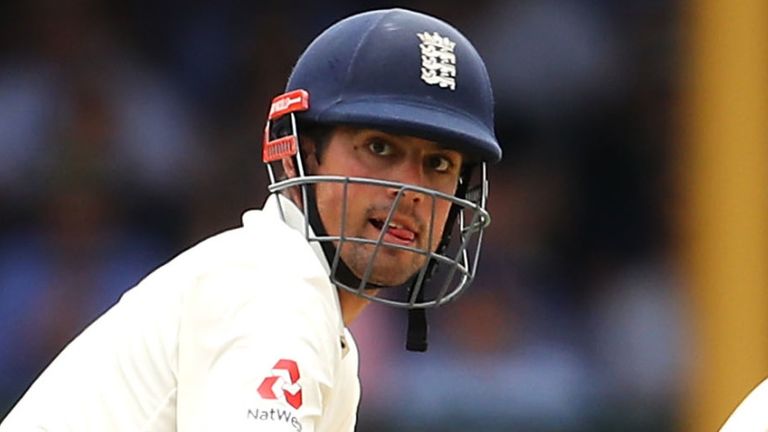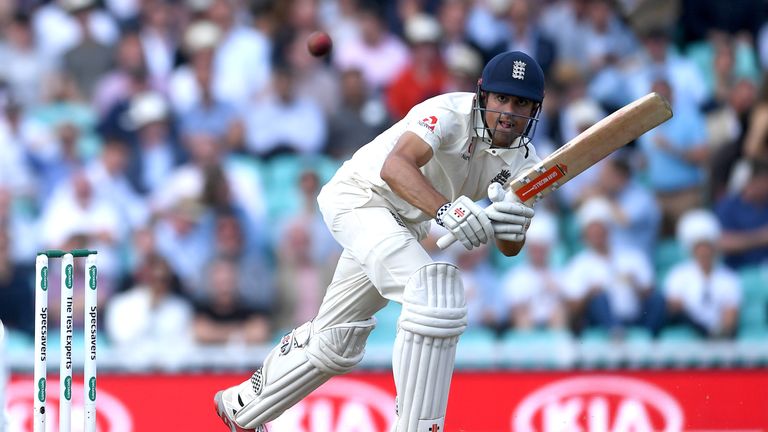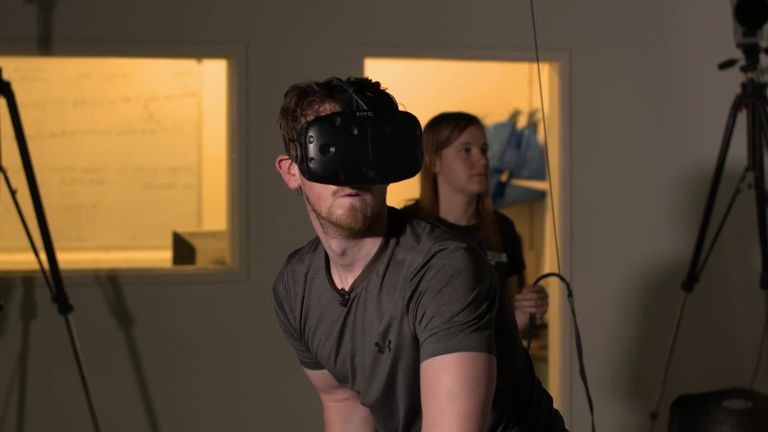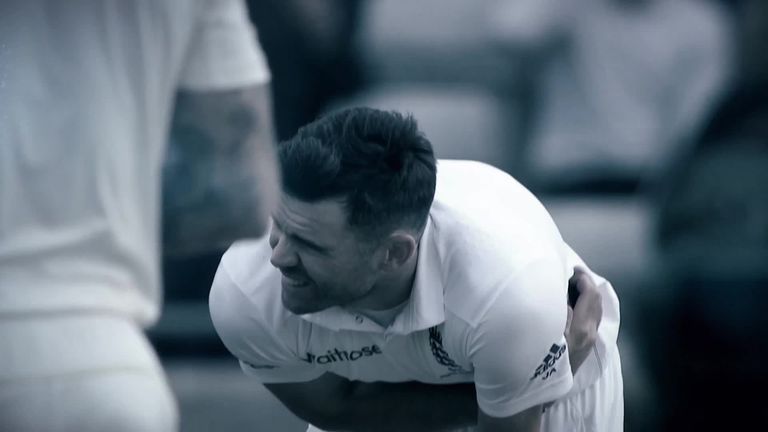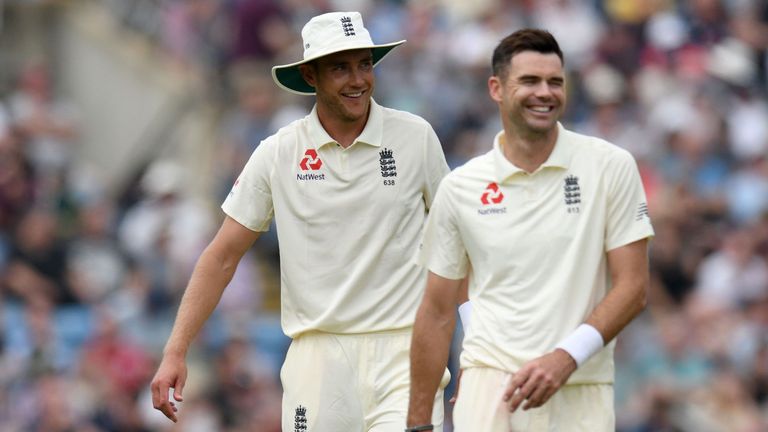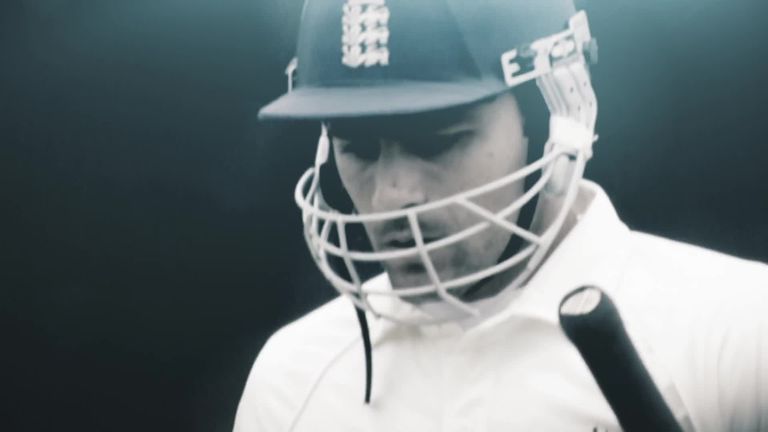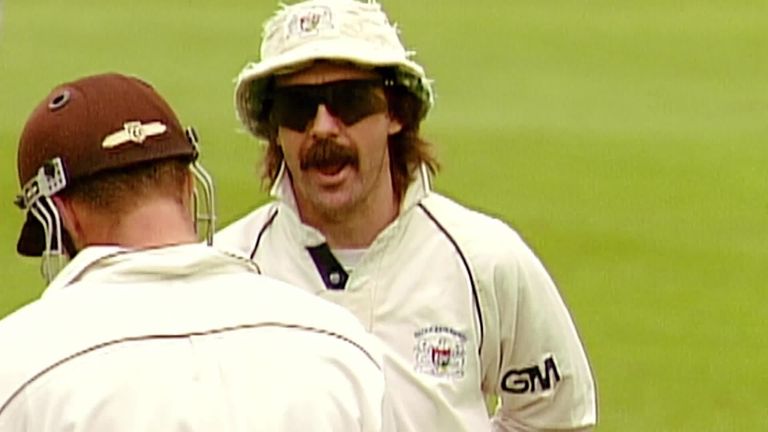Watch every episode of Mind Games as we examine cricket and sport's mental side
Wednesday 10 October 2018 06:53, UK
World Mental Health Day aims to raise awareness and education of mental health and break down stigmas surrounding the subject.
Charles Colvile examined mental health in the sporting community during our Mind Games series on Sky Sports Cricket this summer, catching up with the likes of Alastair Cook, James Anderson and Stuart Broad.
Colvile investigated what it means to be mentally tough, principally through the prism of cricket, in a show where we explored the routines today's players use to prepare for the challenges of the modern game.
We also spoke to other athletes about the challenges their sports throw up and took a look into the future to find how cutting-edge technology is helping the next generation of England cricketers.
You can watch each episode of Mind Games via our On Demand service - alongside our other summer features Cricket in Mumbai and Sir Vivian Richards: Through His Eyes - or by clicking on the videos in this article.
EPISODE FIVE - ALASTAIR COOK SPECIAL
In a special extra episode of Mind Games following Cook's international retirement, we bring you an extended interview we filmed with England's all-time leading Test run-scorer earlier this year.
Watch in the video at the top of the page.
Cook candidly reveals the moment he thought he was "gone" as an England player - before he scored a potentially career-saving ton against Pakistan at The Oval in 2010 - and how he never stopped questioning himself despite all he achieved in the Test arena.
The opener tells Charles how being a choir boy when he was young instilled a discipline and ability to perform under pressure that he took into cricket and how he rarely felt overawed in Test matches.
Cook also details the benefits he felt working with a sports psychologist, writing things down ahead of a crucial game, tweaking his technique, and retaining a high level of physical fitness.
Finally, does Cook consider himself a mentally-tough cricketer?
EPISODE FOUR - THE NEXT FRONTIER
How is the mental side of sport set to change?
In the final part of the series, Charles investigates what the future holds in sport and how technology is helping to shape the athletes of tomorrow, visiting Queen's University Belfast to try out a virtual reality headset which transfers budding sportsmen to top sporting venues, such as Lord's.
We see how young cricketers and American footballers are selected on character and an ability to think on the fly, and if those traits can be improved, plus hear how Marcus Trescothick's stress-related illness broke down the stigma of mental health, something ex-Arsenal defender Tony Adams says is now evident in football.
We also get the lowdown from Joe Root, Tom Westley and Jade Dernbach about what it's like to have your game constantly scrutinised.
EPISODE THREE - THE HARD YARDS
Is it more mentally challenging to be a bowler than a batsman?
In episode three, we look at the different mentalities bowlers adopt to get into their rhythm, the varied challenges seamers and spinners face and how the 'red mist' can descend.
Anderson and Broad talk through what they do in the build-up to a Test match and how they visualise everything from the batsmen they will bowl to, the roar of the crowd and their run-up to help keep them calm on the morning of a game.
We also hear from Glenn McGrath, Bob Willis and Darren Gough about what is going through their heads as they run up to deliver the ball, while Graeme Swann talks through the unique challenges a spin bowler faces in often being seen as a match-winner in the final innings of a game.
Plus, Scott Boswell talks through bowling six wides in an over in a domestic Lord's final and the effect that career-ending match had on him.
EPISODE TWO - GOOD ENOUGH?
In episode two, we investigate why some players are able to control their nerves while others cannot - and take a look at the frustrating careers of two England batsmen, Graeme Hick and Mark Ramprakash. Neither fulfilled their potential at the highest level - so what stopped them?
Ramprakash reveals for the first time that he was constantly battling crippling nerves and self-doubt shortly into his England career, while Hick admits he never quite felt at home in the dressing room at the early stage of his international career.
We also speak to a number of former players - including Trescothick, Nasser Hussain, and Steve Waugh - who share their experiences about what it takes to thrive in the Test environment.
Plus, Broad stresses the importance of having a switch-off button and Anderson reflects on why mental strength can help banish self-doubt.
EPISODE ONE - THE ZONE
In episode one, former and current players talk us through elements of their pre-game routine from watching clips of themselves and opponents to using mindfulness and meditation.
Jeremy Snape, former England bowler and professional sports psychologist, explains how visualisation can help, while golfer Justin Rose, boxer Anthony Joshua and former rugby union player Will Greenwood talk about the importance of embracing pressure.
Plus, what you can learn from a batsman's body language as he emerges from the pavilion and just how important are trigger routines?
We also take a look at some of the 'dark arts' used to unsettle opponents and learn how some players thrive on the clarity of a match situation.
Watch 'Mind Games' On Demand now.
Comment below to get involved in the debate, but please adhere to our House Rules. If you wish to report any comment, simply click on the down arrow next to the offending comment and click 'Report'.
